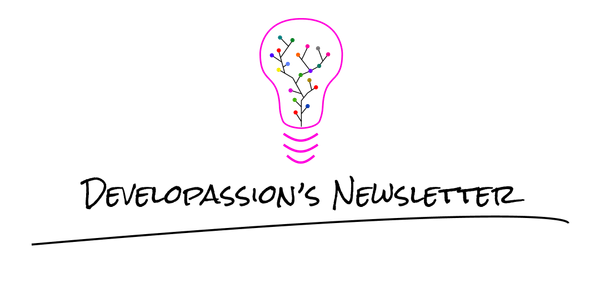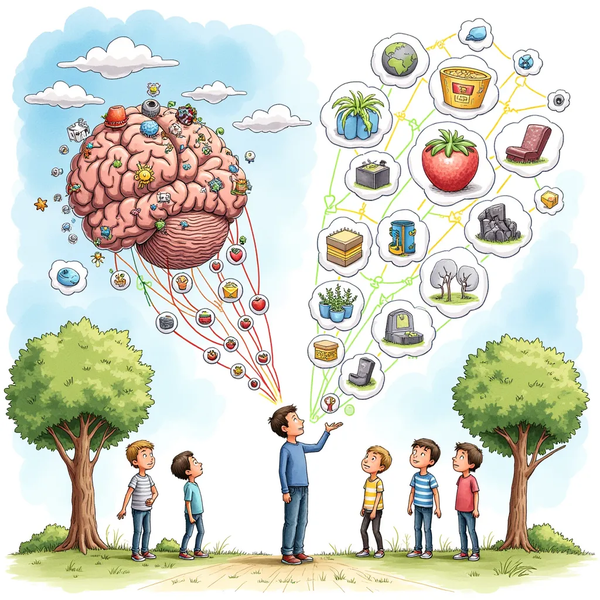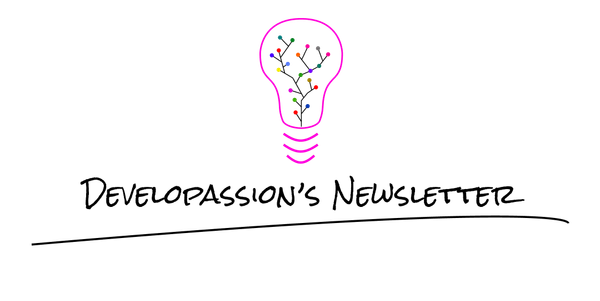How to achieve Work-Life Balance to Improve Your Well-Being
Discover the secrets to mastering work-life harmony with practical strategies that promote a balanced, fulfilling life

In my last post, I’ve briefly explained that I recently had to pause for a little while and take a break. I really needed to stop and take a good hard look at my way of living, breathe a little bit and recharge.
It’s not something that I usually do, as I’m constantly hopping for idea to idea, project to project, milestone to milestone; barely allowing myself to take some time off.
Introduction
Over the years, I’ve created myself a methodology allowing me to stay focused for really long periods of time (years :p). It is a great tool, as it helps me reach my goals consistently, but it’s also a dangerous one, as it can easily be misused to work too much ;-)
In my case, it went as far as making me feel bad about taking ten minutes to check out a videogame review or taking a small nap.
In a later series, I’ll explain more about my methodology. Here, I’ll rather talk about the break that I’m allowing myself to take for now, while I recharge my batteries and review my plan for the coming months.
Work life balance tip #1: Sleep more
The first thing that I’ve started doing that really helped me feel less stressed & overwhelmed in the last few month was to increase my sleeping hours from 4–6 to 7–8.
I’ve neglected sleep for as long as I can remember, so changing this wasn’t easy (and still isn’t!), but I really feel the difference.
I’ve also taken the occasion to become more of a morning person (I now wake up around 5:45 almost every day), as it is the best way for me to get some quality time for myself. Early in the morning, everyone is still sound asleep at home, so I can enjoy the silence, exercise and slowly prepare my day.
I’m still in the process of adjusting (old habits die hard), but the effect is clearly there.
Work life balance tip #2: Miracle morning
Becoming a morning person is something that I always considered impossible, simply because I didn’t even want to think about it.
But in retrospect, I regret not trying to do it earlier in my life. It’s easy to believe that you’re “not a morning person”, but it’s just bullshit. We’re creatures of habits and we all have an incredible capacity to adapt.
The idea of waking up earlier was given to me by my awesome life coach, Amélie, who recommended me to read a few books, including the famous Miracle Morning, by Hal Elrod. It’s really a book that I recommend reading.
The core idea proposed by Miracle morning is simple: wake up early, put a routine in place, stick to it long enough to turn it into a habit and start earning the benefits.
In my case, my miracle morning looks as follows:
- Wake up and get up within 5–10 minutes (I’ve tried getting up directly, but I still ain’t there :p)
- Drink a big glass of water to wake up
- Exercise for 10 to 60 minutes (depending on the energy, motivation, etc)
- Take a shower
- Meditate for 5 to 15 minutes
- Read for 15 to 30 minutes
- Plan my day
Drinking a big glass of water really helps to get some brain cells to awaken (at least a few of those :p).
Exercising each day is also super motivating, as it really boosts the energy and morale. During the first few days it was really hard to exercise for more than 5–10 minutes (yes, I was that far!), but now, after a few months of daily practice, I can keep going for much longer. Raising the intensity levels over time is also super good for motivation, as you can witness progress from week to week.
It apparently takes ~60 days for a real habit to be forged, so if you just start out, just keep going and forget about the calendar. Just focus on really doing it each and every day, even if only for a few minutes.
After the shower, I usually feel super awake, full of energy and motivated.
Meditating then helps me to relax and listen to my feelings. If you’ve never tried, then go ahead and install an app such as Headspace.
Next up is reading: I always told myself that I didn’t read much anymore. Most of the time, I kept reading as the very last thing to do before sleep. In practice, I usually felt asleep after 5–10 minutes or started re-reading the same sentence 10 times before abandoning. It was definitely not the best time for me to read.
Incorporating reading in my morning routine was the best way for me to ensure that I dedicated at fraction of my time to this activity, without distraction and without risking to fall asleep. This habit allows me to finally read more and reduce my reading backlog :)
Finally, the last part of my morning routine is the battle plan for the day. I’ll discuss this much more in detail in a later post, but briefly said, my goal there is there take 5–10 minutes and think about what I really want/hope to achieve during the day.
This habit creates focus and helps me remain positive; even if I didn’t complete everything there is to do, I know that I at least focused my efforts on what was most important/impactful.
Work life balance tip #3: Have fun
The first two changes brought me more energy, more focus and a better morale. This was already an awesome improvement in my daily life, but it wasn’t enough.
At the beginning of 2020, my work situation has changed and it was quite hard for me to adjust. At the same time, personal matters also wrecked havoc in my mind. Both of these isolated issues have put me in a sort of depressive mindset, which I’m still trying to get out of.
In order to battle against that, I’ve put some things in motion. For one, I’ve decided to go discuss with a psychologist to help me straighten things out.
Also, I’ve decided to put the bar a little lower for a while and give myself a break.
During the first 25 years of my life, I was a gamer. I’ve spent countless hours playing videogames. Atari, Commodore 64, NES, SNES, Megadrive, Game Gear, Game boy, Nintendo 64, Saturn, PS1, … I couldn’t help but spend all the time I possibly could playing games.
I played and played and played; then along came the Web and I kept playing. I played offline, I played online, from RPGs like Final Fantasy to FPS like Quake and Half-Life and MMOs like World of Warcraft.
More recently, I still enjoyed playing and did so from time to time, but the last time I really played a lot was really a long long time ago. At some point in my life, I deliberately chose to play much less and focus on achieving “more important” goals of mine.
I didn’t allow myself to play all that much anymore. Each time I did, I felt bad because it meant that project X or Y wasn’t moving forward and I blamed myself for wasting precious time.
So now that I don’t feel all that well, I’ve listed all the things that bring joy into my life and videogames were in the top 5. So, a few weeks ago I’ve decided to allow myself to play again. Maybe not as much as I did in the past (much harder nowadays :p), but whole evenings without regretting it.
And it does feel great. I’ve played some games that I’ve put aside for too long and enjoyed going back to my “roots” ;-)
What I want to say here is basically: just let go; it’s perfectly OKAY not to be always 100% focused, 100% productive, 100% perfect. It’s OKAY to just sit back and relax from time to time.
I do still plan on working on side projects (like my upcoming novel) during the evenings and week-ends, but I also plan to keep entire evenings for FUN only. It’s all a question of equilibrium.
Work life balance tip #4: Eat well
The next change I’m currently working on is FOOD.
This is the hardest subject for me, as I never wanted to really pay attention to eat better (better for my organism I mean).
I don’t want to discuss this in detail just yet, because I’m just starting, but there really are tons of things to say here.
I’m lucky enough that my wife is currently studying Naturopathy and brings home a lot of knowledge about health and food, so I have access to a load of information about facts that food manufacturers are often not interested in sharing with the world.
But this change is really really hard. More on this one later!
Work life balance tip #5: Plan ahead
The final change that I’m working on (for now) is doing a full review of my life plan.
Do you have one? Is there even such a thing?
Those who know me well know that I love organizing/structuring information and, to me, making a plan for my life always made a lot of sense. I’ve started doing this years ago, after reading Getting Things Done, the seminal book of David Allen.
Again, I’ll describe this more in detail in a later post about my methodology/system, but I’ll at least give you an idea about it.
My “plan” is not like a business plan; it’s not comprehensive, long, verbose or whatever. It’s actually a simple mindmap, that I use and review on occasion (usually once or twice a year).
In that map, I list my most important projects (personal or professional), where they’re at, where I’m going with them, etc. I also list things that I still want to do with my life, things I’d like to change, etc. I’ll talk about the structure of the plan in a later post.
My plan helps me crystallize my thoughts and my priorities in life. It helps me figure out where I want to go next and how to get there.
Once it is updated, I don’t need to ask myself 36000 questions; I just act based on it to reach the goals I’ve set and I go with the flow.
I’m right in the middle of reviewing it now. It’s an exercise that takes quite a bit of time, as changes to the plan have huge ramifications and long lasting effects. During the exercise, I ask myself tons of questions about what I’ve done so far, how I feel about it, what it has brought me, what I want to do this year, in a few years, in ten years, etc.
Making a “life plan” might sound stupid to some, but I found this to be very effective for myself. I’m the type of person that need to visualize things :)
Again, I’ll discuss this in another post!
That's it for today! ✨
About Sébastien
I am Sébastien Dubois. You can follow me on X 🐦 and on BlueSky 🦋.
I am an author, founder, and coach. I write books and articles about Knowledge Work, Personal Knowledge Management, Note-taking, Lifelong Learning, Personal Organization, and Zen Productivity. I also craft lovely digital products . You can learn more about my projects here.
If you want to follow my work, then become a member.
Ready to get to the next level?
To embark on your Knowledge Management journey, consider investing in resources that will equip you with the tools and strategies you need. Check out the Obsidian Starter Kit and the accompanying video course. It will give you a rock-solid starting point for your note-taking and Knowledge Management efforts.
If you want to take a more holistic approach, then the Knowledge Worker Kit is for you. It covers PKM, but expands into productivity, personal organization, project/task management, and more:
If you are in a hurry, then do not hesitate to book a coaching session with me:





